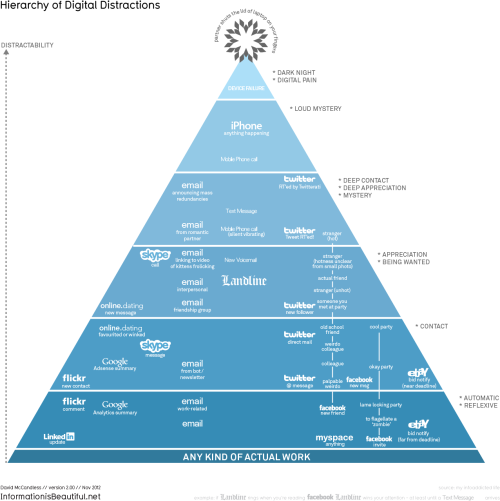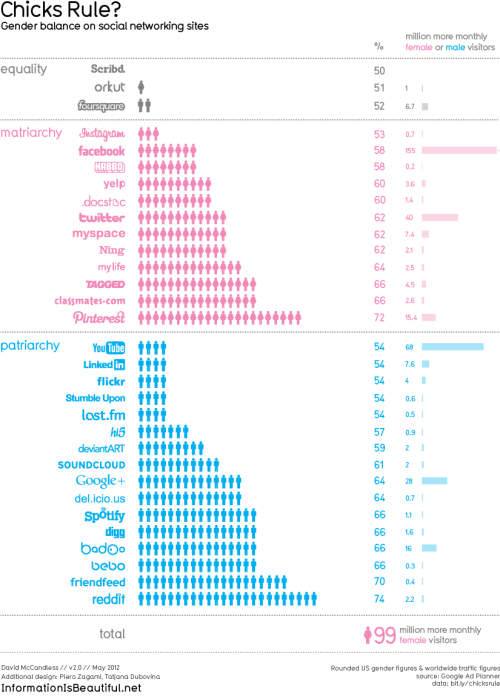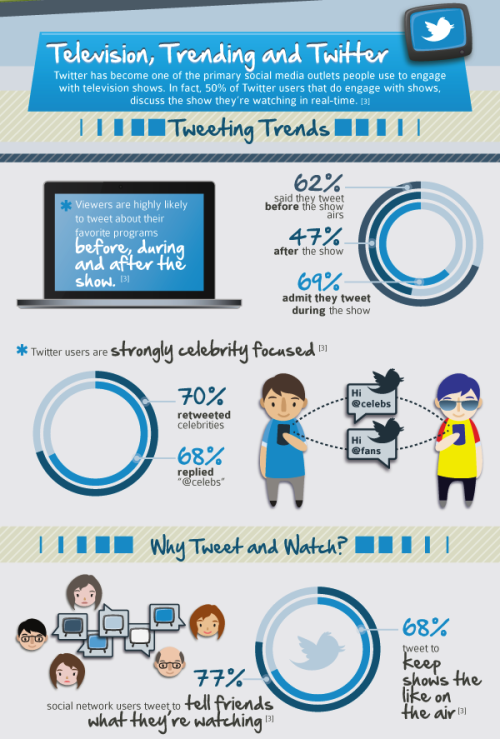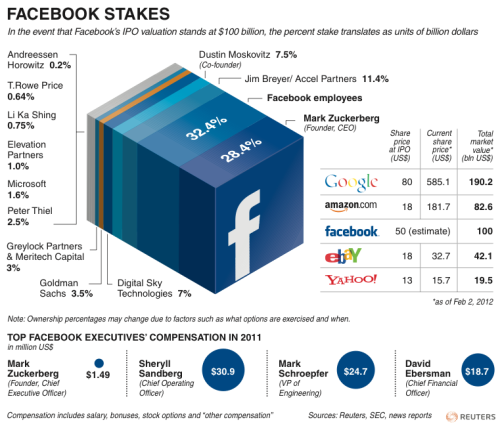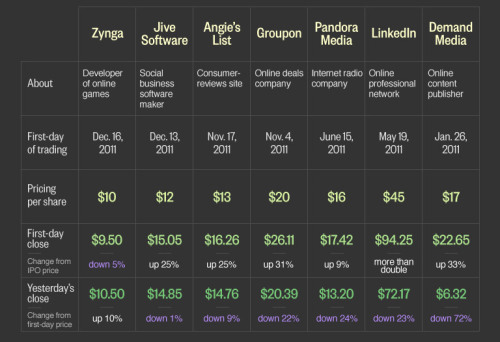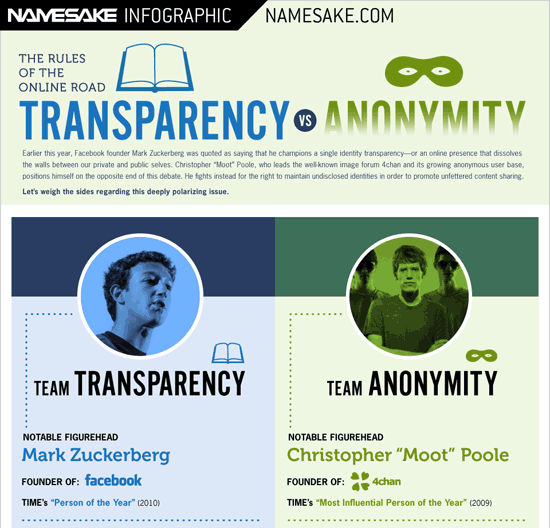Showing posts with label social media. Show all posts
Showing posts with label social media. Show all posts
Wednesday, February 13, 2013
Humor: Hierarchy Of Digital Distractions
Monday, June 18, 2012
Documentary: The Culture Of Reddit
Labels:
culture,
documentary,
internet,
social media
Friday, June 1, 2012
Tech Links: June 1, 2012
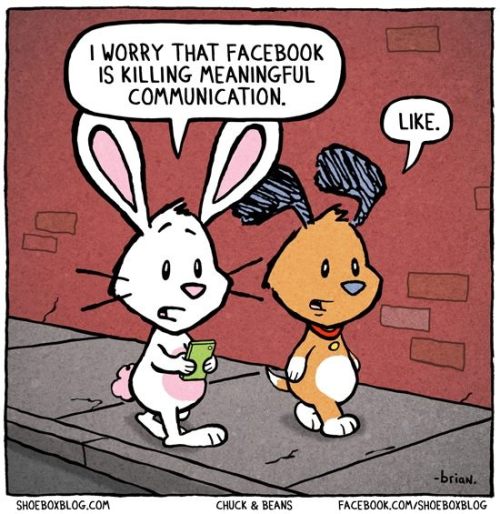
Source: Brian @ Shoeboxblog
Business
How Amazon is changing the rules for books and movies
How Tim Cook is changing Apple
Motorola Will Be Google’s Most Interesting Project Yet
Why Apple needs to settle its e-book suits
Entertainment
In the age of the internet and negative reviews, you need to be able to turn that one customer’s bad experience into a PR boost.
Life in Life: Using something called an OTCA metapixel (Outer Totalistic Cellular Automata Meta-Pixel), which is a pattern in Conway’s Game of Life, someone has implemented the Game of Life inside of another Game of Life.
The Most Magical Event in Twitter History Just Happened
The Romney Campaign released an app so you can illustrate the phrase "A Better Amercia. I'm with Mitt." People are going with it, and you can see the results at the blog Amercia is With Mitt!
Gadgets
3D printing can now make replacement jaws, thousands of user-designed widgets, electromechanical computers - but also ATM skimmer fronts, handcuff keys and gun parts. But can you own the shape of a thing?
As they become more readily available to consumers, LEDs will undoubtedly replace CFLs as the primary light source for residential and commercial, inside and out, due to their dramatic efficiency gains. In an unexpected turn of events, however, MIT researchers have developed an LED with 230 percent efficiency. Impossible, you say? Supposedly , the Law of Thermodynamics is not violated because the device converts ambient heat into photons.
A Facebook Phone: Ambitious Leap or Fatal Mistake?
Internet
46% of Americans Call Facebook A Fad
Google Lifts Veil On Copyright Takedowns: Detailed Data On Who Requests Removals
News
New York Legislation Would Ban Anonymous Online Speech | Threat Level | Wired.com
A Scary Precedent: Hackee Allowed To Decide Hacker’s Fate
Senator admits: SOPA “really did pose some risk to the Internet”
U.S. and Israel have been confirmed as the authors behind the Stuxnet virus. The program — codenamed "Olympic Games" — was started under Bush and accelerated under Obama. The virus was never meant to expand beyond the Iranian nuclear facility it targeted.
Reading & Discussion
Pandora's Vox: On Community in Cyberspace: "when i went into cyberspace i went into it thinking that it was a place like any other place and that it would be a human interaction like any other human interaction. i was wrong when i thought that. it was a terrible mistake."
Resources & Software
Do SLR cameras confuse you? Then try the SLR Camera Simulator.
Science
Apocalypse Soon: Has Civilization Passed the Environmental Point of No Return? Four decades ago, a Massachusetts Institute of Technology computer model called World3 warned of such a possible course for human civilization in the 21st century. In Limits to Growth, a bitterly disputed 1972 book that explicated these findings, researchers argued that the global industrial system has so much inertia that it cannot readily correct course in response to signals of planetary stress. But unless economic growth skidded to a halt before reaching the edge, they warned, society was headed for overshoot—and a splat that could kill billions.
MIT Scientists Figure Out How to Get Ketchup Out of the Bottle
Minus 40 degrees is the same temperature in both Celsius and Fahrenheit. It is also the temperature where skin freezes, and the point where water is completely frozen (and mercury too). Strangely, it's also the average temperature of the record lows for all 50 United States, though normal in Alaska.
Science off the Sphere is a video series by Don Pettit aboard the ISS showing off the neat things you can do in zero-gravity.
Software
An anti-censorship software package Simurgh, aimed towards aiding dissidents in Iran and Syria, has been circulated with a backdoor that reports keystroke logs back to a server hosted in the U.S. but registered with a Saudi Arabian ISP.
JavaScript at 17 Brendan Eich on the language he initially created in just 10 days in 1995, and on its state now, 17 years later.
Technology
Apple's Crystal Prison and the Future of Open Platforms.
How Headphones Changed the World
Smartphones Reignite the OS Wars
Tutorials
Journey into Cryptography is a multipart video introduction to the subject for beginners, created by Brit Cruise and hosted by Khan Academy. There are several interactive tools to help explain some key concepts. Also, a recent lecture entitled "Principles of Security" was given by noted Javascript curmudgeon Douglas Crockford, focusing on security and the web, with a detour into Volapük.
Wednesday, May 30, 2012
Infographic: Gender Balance on Social Networks
Thursday, May 17, 2012
Infographic: Social Networking Sites Compared
Monday, May 14, 2012
Monday, April 30, 2012
Video: If LinkedIn Was Created In the 1980s
Friday, April 27, 2012
Video: The World Is Obsessed With Facebook
An informational motion graphics piece by Alex Trimpe
Monday, April 16, 2012
Infographic: Blogging is Like Sex
Tuesday, March 27, 2012
Interview: Futurist Stowe Boyd
IBMSocialBiz ( IBM blogger Todd Watson) interviews Stowe Boyd at South By Southwest Interactive 2012 (SXSWi 2012) from the IBM Future of Social Lounge. Boyd talks about Cluetrain, the social revolution online, work media tools, the impact on media companies, the changing way we read, and his upcoming ebook, The Business Of Social Business.
Labels:
future,
interview,
social media,
technology,
video
Monday, March 26, 2012
OpEd: If you have news, it will be aggregated
If you have news, it will be aggregated and/or curated:
More than anything, it means that trying to recreate the scarcity of content that used to exist in print — when media outlets controlled not only the creation of news but the platforms through which it was distributed — by using paywalls and subscription apps is fundamentally a losing battle. Many users want that content to be part of a larger digital experience, whether it’s through an aggregation app like Flipboard or through Facebook or Twitter. If your content is not designed to take advantage of that, you will be missing a larger and larger proportion of the audience you need.Source: Gigaom
One response to that is to shrink your audience down to those who will pay, as some outlets like the Financial Times have done and several of Rupert Murdoch’s British papers are trying to do. The other approach is to be as open and distributed as possible, to try to take advantage of the democracy of distribution instead of fighting it, and then to find other ways to monetize that audience and their attention, whether it’s e-books or live events or the “reverse paywall” model Jeff Jarvis and others have proposed. Either way, aggregation and curation are the new reality of media, whether media companies like it or not.
Study: Top 5 Sites Visited While Watching TV

In Nielsen’s U.S. Digital Consumer Report, we were given a glimpse of the extent consumers are connected while watching TV. The world’s greatest attention magnet now meets the world’s coolest digital water cooler.What’s clear is that connected consumers are also seasoned multi-taskers. When asked what they’re doing on their devices while watching TV, the top 3 activities included:
1. Checked email - 57%
2. Surfed the Web - 44%
3. Visited a social network - 44%
The study hinted that there's still hope for advertisers, though. 19% of smartphone and tablet owners searched for product information while 16% looked up coupons or deals.
Monday, March 5, 2012
Lecture: Why Videos Go Viral
Kevin Allocca is YouTube's trends manager, and he has deep thoughts about silly web video. In this talk from TEDYouth, he shares the 4 reasons a video goes viral. (This is the first talk posted from an amazing TEDYouth event. Many others will come on line next month as part of our TED-Ed launch. We can't wait ...)
Friday, March 2, 2012
Tech Links: March 2, 2012
Infographic: Who has the most stake in Facebook
Source: Reuters
Entertainment
Infographic: The Digital Classroom
Infographic: Pros and Cons of Social Media in Education
Gadgets
Raspberry Pi the £22 ($35) computer was launched today and sold out immediately. It is intended to encourage children to develop a better understanding of computers and get involved in programming. The design is based on a Broadcom BCM2835 SoC with no keyboard or other frills; it's meant to run Linux.
News
Last week, small press distributor Independent Publishers Group (IPG) announced that Amazon has decided to stop selling Kindle editions for the publishers IPG represents. The decision impacts over 500 small publishers and almost 5,000 Kindle titles. Neither party has offered much in the way of specifics, but other publishers have been reporting that Amazon has been pressuring them to offer higher discounts and/or pay a “co-op” fee of an additional 3%-4% on all sales to cover the cost of offering “automation and personalization” services (i.e. Customers who bought x also bought y). Authors and publishers have been reacting to the development.
Verisign today seized control of a .com domain belonging to a Canadian online gambling business operating in Canada (inasmuch as an online business can be said to be operating in Canada), on behalf of Federal Authorities. "what has happened is that US law (in fact, Maryland state law) as been imposed on a .com domain operating outside the USA, which is the subtext we were very worried about when we commented on SOPA."
Reading & Discussion
"Smart talk has never been such a valuable commodity. It’s spawned conferences like TED, Davos, and now a slew of upstart competitors. It has made the eighteen‑minute TED lecture a viral online phenomenon. But are we running out of things to say?"
Resources & Software
Curious about windows 8? ISO images for the 'consumer preview' version are now available from Microsoft. Typically these previews expire at a certain date, but the previously released developer preview won't expire until January 15th, 2013. You can use the Open Source Virtual Box to run the OS in a virtual machine. (Instructions for installing windows 8)
EFF's HTTPS Everywhere v2 adds support for Chrome and adds Decentralized SSL Observatory to the FireFox version. SSL Observatory helps cryptographic researchers find implementation problems and now warns users when known problems are detected. And it plays nicely with Tor of course. There is also another interesting EFF project in the works called Sovereign Keys that seeks to replace the certificate authority system entirely.
Tutorials
Adm. Grace Hopper, inventor of the first compiler, explains how big a nanosecond is
Thursday, February 2, 2012
News: FBI plans to monitor social networks
One Per Cent: FBI releases plans to monitor social networks:
The US Federal Bureau of Investigation has quietly released details of plans to continuously monitor the global output of Facebook, Twitter and other social networks, offering a rare glimpse into an activity that the FBI and other government agencies are reluctant to discuss publicly. The plans show that the bureau believes it can use information pulled from social media sites to better respond to crises, and maybe even to foresee them.Source: NewScientist
News: From hot stuff to flameout
If recent tech IPOs are an indicator, Facebook should beware the dangers of overhype. Julie Cohn explains:
A sampling of IPOs from the last year reveals that almost all major new tech offerings soared on overheated initial expectations at first, but quickly deflated thereafter. Reports surfaced late yesterday that said Facebook is expected to file paperwork indicating it plans to raise $5 billion using five banks as underwriters, led by Morgan Stanley.
Wednesday, February 1, 2012
Infographic: Transparency vs Anonymity
Net: Use Facebook to Promote your Town
One tiny town in Switzerland found a fun (and entirely wholesome) way to promote itself on Facebook. [Via]
Monday, January 23, 2012
Tech: How People Reacted to the Internet Blackout
Andrei Taraschuk and Aaron Ott created a fascinating visualization showing how people on Twitter reacted the Internet blackouts on January 18th in protest of SOPA and PIPA by mapping tweets mentioning #pipa #sopa and #blackout.
Monday, January 16, 2012
Video: Digital Life
Digital insights to power growth, a summation of the largest global study ever conducted on people's attitudes and behaviors online.
Labels:
internet,
social media,
study,
technology,
video
Subscribe to:
Posts (Atom)
